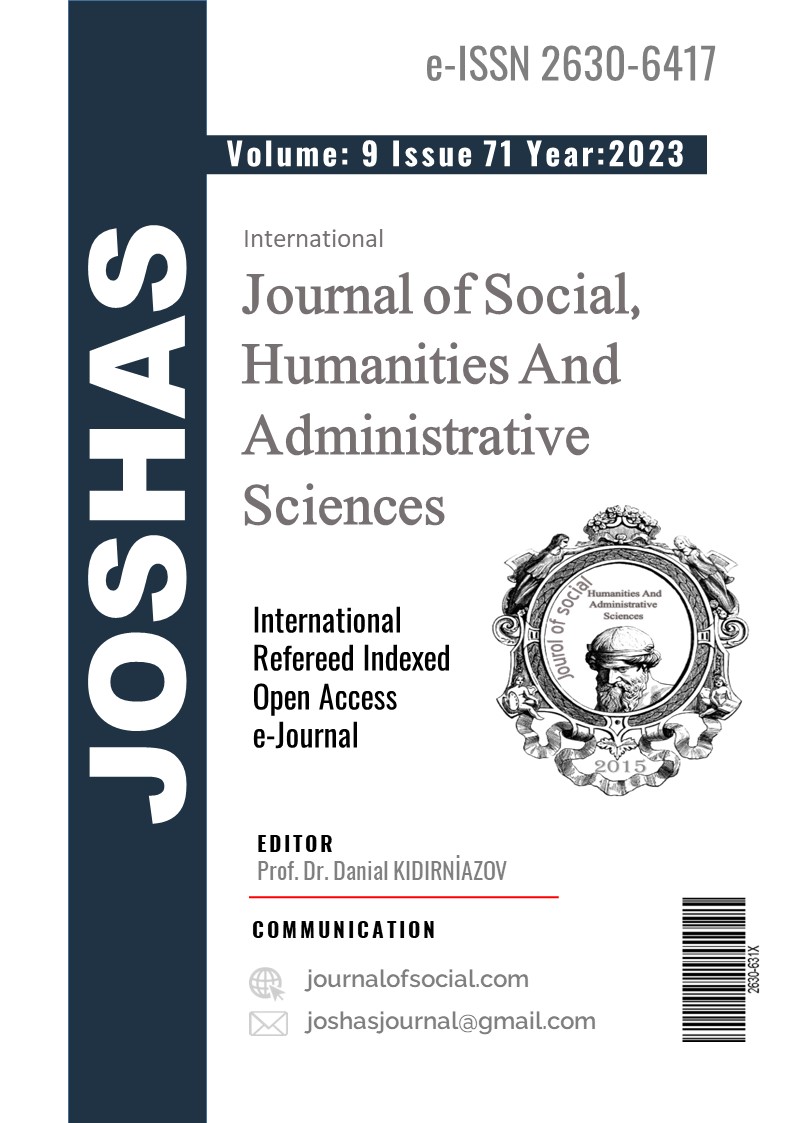Author :
Abstract
Bu çalışma ile hedeflenen genel amaç; mantar yönetimi olarak adlandırılan ve olumsuz şekilde değerlendirilen yönetim biçimi ile örgütsel kimlik algısı arasında ilişki ve etkileşim olup olmadığını, varsa ne yönde ve ne derecede bir ilişki ve etkileşim olduğunu belirleyebilmektir. Bu nedenle çalışma, tanımlayıcı tarama ve değişkenler arası etki ve aracılık modeli kurgulaması türündedir. İstatistiksel evren Batman ilinde imalat sektöründe çalışan yaklaşık 23.500 çalışanı kapsamakla birlikte, örneklem sayısı 427 çalışandan oluşmaktadır. Araştırmada iki ölçüm aracından yararlanılmış olup, ölçek güvenirlilikleri (α) ,92 ve ,98’dir. İstatistiki veriler SPSS 27 programı ile analiz edilmiştir.
Elde edilmiş verilere göre mantar yönetimi ile örgütsel kimlik arasında (r=-,734) oranında yüksek oranlı negatif yönlü anlamlı bir ilişki tespit edilmiştir. Ayrıca örgütsel kimlik algısının olumsuz olarak ortaya çıkmasının %58’sinin mantar yönetimi algısı tarafından açıklanabildiği ve mantar yönetimi algılarının, örgütsel kimlik algısını β:-.654 düzeyinde negatif yönde etkileyebileceği sonucuna ulaşılmıştır. Sonuç olarak elde edilmiş veriler araştırma hipotezlerini desteklediği söylenebilir
Keywords
Abstract
The general aim of this study is; The aim of this study is to determine whether there is a relationship and interaction between the negatively evaluated management style called mushroom management and the perception of organizational identity, and if so, in what direction and to what extent there is a relationship and interaction. For this reason, the study is in the type of descriptive scanning and inter-variable effect and mediation model construction. Although the statistical universe covers approximately 23,500 employees working in the manufacturing sector in Batman province, the sample number consists of 427 employees. Two measurement tools were used in the study, and the scale reliabilities (α) were .92 and .98. Statistical data were analyzed with SPSS 27 program.
According to the data obtained, a high negative significant relationship of (r=.734) was detected between mushroom management and organizational identity. In addition, it was concluded that 58% of the negative perception of organizational identity can be explained by the perception of mushroom management and that mushroom management perceptions can negatively affect the perception of organizational identity at the level of β:-.654. As a result, it can be said that the data obtained supports the research hypotheses.





